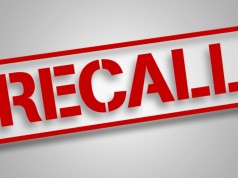
Zofran is the brand name for a Ondansetron, which is commonly prescribed for morning sickness and other types of nausea. Although it is commonly prescribed, the question arises as to whether it is safe to use this drug while pregnant.
Zofran is a medication manufactured by GlaxoSmithKline that has been approved for the treatment of nausea and vomiting. The Food and Drug Administration (FDA) originally approved the medication for patients who were receiving chemotherapy or radiation therapy. It may also be prescribed to treat nausea related to surgery or post-operative patients. It is often quite effective when the patient uses it as directed.
This medication is also useful in the treatment nausea and vomiting associated with pregnancy. It is considered an “off-label” treatment that allows physicians the option to use the medication if they believe it will be beneficial to the patient. However, drug manufacturers are prohibited from marketing or promoting any medication for off-label use. Some studies have been conducted that have shown an increased risk of severe birth defects when Zofran is used by a pregnant woman.
Birth Defects Associated with Zofran Use
While Zofran is listed as a Category B medication during pregnancy, it doesn’t prevent doctors from prescribing the medication for morning sickness (Category B medications have not been proven safe for use during pregnancy).
Approximately 15 percent of all pregnant women suffer from severe morning sickness. The majority of nausea and vomiting occur when the mother is in the first trimester; the time when medications can cause the most damage to the developing fetus. As a result, most women who used Zofran during pregnancy did so during the first trimester.
Research has shown that using Zofran during pregnancy doubles the risk of the fetus developing cleft palate or fetal heart defects. There is also reason to believe it can increase the potential for birth defects by as much as 34 percent.
Some of the birth defects that could develop from the use of Zofran include the following:
- Malformation of the kidneys
- Cleft palate
- Skeletal defects
- Miscarriage
- Fetal growth restriction
- Stillbirth
- Congenital heart defects
- Club foot
- Jaundice
- Abnormalities in the musculoskeletal system
Recalls and Settlements
The FDA warned Zofran manufacturer, GSK, about improperly marketing Zofran. They cited the company for its failure to provide adequate representation regarding the side effects and risks associated with using the drug.
In 2011, a study showed that any doses of Zofran that exceeded 16 mg increase the risk of cardiac arrhythmia. As a result, they were forced to recall all injectable dosage formulations of 32 mg in 2012. GSK paid $3 billion in civil and criminal penalties in 2012 in order to settle allegations by the Department of Justice that they were guilty of the promotion of the off-label use of Zofran in pregnant women. They were also accused of issuing kickback payments to physicians who prescribed the medication.
Lawsuits
In spite of the fact that GlaxoSmithKline paid $3 billion in settlements, they may still be responsible for the further payment of any damages or injuries that result because of Zofran use.
A child who suffered birth injuries due to the use of Zofran during pregnancy may be entitled to receive significant compensation for those injuries. The compensation may include payment of medical expenses, lost income, compensation for future medical treatment, as well as for pain, suffering and disfigurement.
These types of cases are quite complex and should be evaluated by an attorney who is experienced in product liability law. We recommend that you find a product liability attorney who offers free consultations (and who works on a no-win, no-fee basis), and speak to them about your options moving forward.







